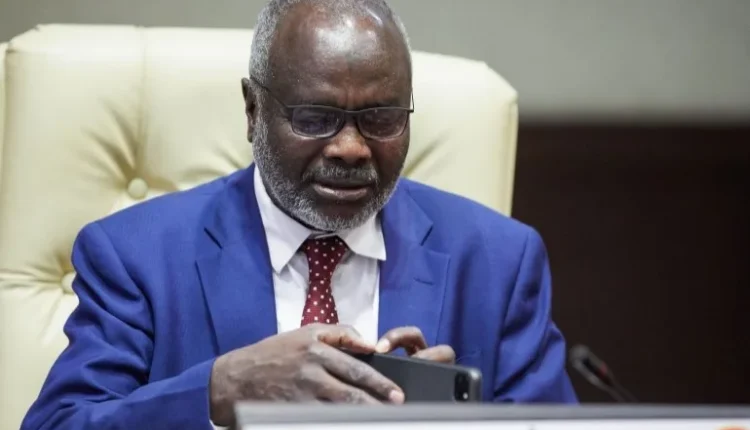Sudan’s JEM Criticizes U.S. Sanctions on Its Leader

Port Sudan – Sudanhorizon
The Sudanese Justice and Equality Movement (JEM) condemned the sanctions imposed by the U.S. Treasury Department on the movement’s leader, Dr. Jibril Ibrahim, on Friday, saying the U.S. action “is part of a series of external conspiracy episodes against Sudan” and constitutes explicit support for a criminal militia whose actions the U.S. State Department has previously described as amounting to war crimes, genocide, and crimes against humanity—condemned by U.N. bodies and international and regional organizations.
The movement’s spokesperson, Dr. Mohamed Zakaria, said in a statement released on Saturday and seen by Sudanhorizon that the move “represents a desperate attempt to save a militia that is on the verge of collapse. Such positions demonstrate the inconsistency of U.S. policy with the principles of justice and human rights.”
On Friday, the U.S. Treasury imposed unilateral sanctions under Executive Order No. 14098 against Dr. Jibril Ibrahim Mohamed, head of the Justice and Equality Movement and Sudan’s Finance Minister.
In its statement, JEM affirmed—citing its documented struggle and declared political vision—that it is not an offshoot of any ideological project or previous regime, stressing that it fought both politically and militarily against the former regime and played a substantive role in effecting change in Sudan. The movement described itself as an original party to the Juba Peace Agreement, an active political actor seeking democratic transition and stability, aiming to integrate its forces into the Sudanese army and transform into a political party that preserves the dignity of the Sudanese people.
The statement rejected claims that the movement obstructed democratic transition as baseless and lacking legal or factual support. It said the movement sided with the Sudanese people and their armed forces and engaged in fighting against the Rapid Support Forces (RSF), which it accused of committing war crimes, crimes against humanity, and ethnically based genocidal acts—perpetrating horrific atrocities against civilians across Sudan, particularly in Geneina, Wad Noura, Al-Hilaliya, and the capital Khartoum—in lawful defense of national unity and civilian protection from Janjaweed militia abuses.
JEM’s statement also refuted attempts to link the movement’s official activities, including international visits by its leader Dr. Jibril Ibrahim, to alleged ties with the Islamic Republic of Iran. The movement emphasized that Dr. Jibril serves as a minister of finance in a legitimate U.N. member state, and his visits to Iran and other countries are part of his constitutional and legal duties within the framework of established diplomatic relations. It argued that strengthening economic ties is a ministerial duty, and questioned how such visits could constitute a crime warranting sanctions—noting that no Sudanese finance minister is unique in such diplomatic engagement, and that visits to Iran have also been undertaken by other ministers, including ones from countries that negotiate with the United States.
The statement described unilateral sanctions as arbitrary, lacking legal basis, and contrary to principles of sovereignty among states. It stressed Sudan’s independence and sovereignty and rejected the notion that its legitimacy derives from any external power.
Concluding, the movement called unilateral sanctions unjust and devoid of legal or objective justification, and urged the international community to direct efforts toward lifting the unlawful siege on El Fasher and other cities, supporting a comprehensive peace process, and standing with the rights and aspirations of the Sudanese people for a dignified life. JEM reiterated that defending Sudan is an honor and moral duty, renewed its commitment to democratic transformation, and affirmed that Dr. Jibril Ibrahim leads a pioneering political project backed by the masses to achieve stability, development, national unity, and protection of Sudan’s sovereignty—declaring that all attempts to weaken, fragment, or plunder Sudan and its resources will fail.
Shortlink: https://sudanhorizon.com/?p=7602

